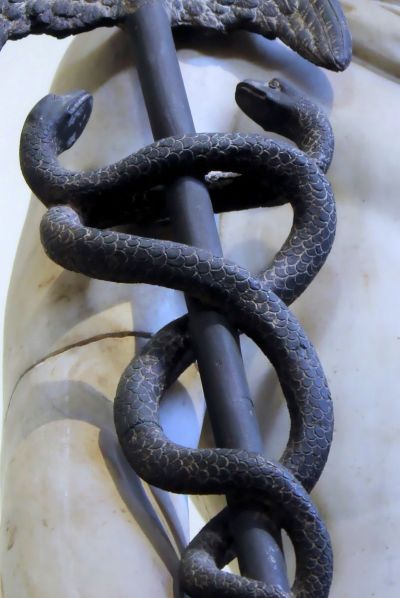It’s too easy to twist the Bible

Someone once said that the Bible is like a fiddle. You can play any tune you want on it. Politicians often play their own Bible tune by taking a well-known verse out of context and applying it to their own political agenda. This was recently done by the governor of California when he quoted Jesus to justify the killing of children in the womb. The Catholic governor made a post of a billboard image that read: “Need an abortion? California is ready to help. ‘Love your neighbor as yourself. There is no greater commandment than these.’ – Mark 12:31.”
But there’s a more subtle out-of-context Bible verse that is deceiving literally hundreds of millions. It is the belief that we can earn our way to Heaven.
James 2:26 says: “For as the body without the spirit is dead, so faith without works is dead also.”
It seems clear from that verse that faith doesn’t save us — that we need works. However, in the context of the many other verses in Scripture about salvation, it is saying that our good works will be the evidence that we have faith in Jesus. Jesus said, “Let your light so shine before men, that they may see your good works and glorify your Father in heaven” (Matthew 5:16). Your light shining brightly is evidence that you have charged batteries in your flashlight.
Those who trust in God’s grace have the evidence of good works — works that flow from gratitude to God for His mercy. Trusting in works is an attempt to bribe the Judge of the Universe, but He will not be bribed on Judgment Day with money or with our so-called good works.
Imagine, after Nathan rebuked David for his adultery and murder, that the king had tried to appease God’s anger by doing some good works. What an offensive thought. The only thing that could save him was the mercy of God, and that is what he called upon:
“Have mercy upon me, O God, According to Your lovingkindness; According to the multitude of Your tender mercies, Blot out my transgressions” (Psalm 51:1).
So, we must tell sinners that the only thing that can save them from death and Hell is God’s grace:
“For by grace you have been saved through faith, and that not of yourselves; it is the gift of God, not of works, lest anyone should boast” (Ephesians 2:8-9).
Eternal life is a free gift of God. It can’t be earned or deserved, and the way to help sinners see that is to move the thought of earning their salvation out of their reach. Jesus did that by using the 10 Commandments to show the true nature of sin (see Mark 10:17-19). When a sinner realizes that God is holy and that He considers lust to be adultery, hatred to be murder (that He sees our inner motives), then he will see that only mercy can save him.
But there is also another subtle way that works try to weed their way up into the equation. This is when someone acknowledges that they have sinned against God, but they trust that their repentance will save them. If they say that they are sorry for their sin and say that they will never commit that particular sin again, then God will allow them into Heaven. That may sound right, but imagine a criminal saying to the judge, “Judge, I know I’m guilty, but I’m really sorry, and I won’t commit the crime again,” thinking that the judge will therefore dismiss his case. The judge would likely say, “Of course you should be sorry, and of course you shouldn’t do it again. You are going to jail!” So, if repentance can’t help us in man’s court, it certainly won’t help us in God’s court.
And that brings us to the rest we find in Christ. When we trust alone in Jesus for our salvation, we cease trying to save ourselves — just as a man who jumps out of a plane wearing a parachute totally trusts the parachute to save him. He doesn’t flap his arms. He stops any effort and simply trusts the parachute to save him.
George Whitfield, in speaking about trying to earn our salvation through our works, said, “What! Get to Heaven on your own strength? Why, you might as well try to climb to the moon on a rope of sand!”
Context is everything — especially when it comes to our eternal salvation.
Ray Comfort is the Founder and CEO of Living Waters and the bestselling author of more than 80 books, including God Has a Wonderful Plan for Your Life, How to Know God Exists, and The Evidence Bible. He cohosts the award-winning television program "Way of the Master," seen in almost 200 countries, and is the Executive Producer of "180," "Evolution vs. God," "Audacity," and other films. He is married to Sue and has three grown children, and hasn't left the house without gospel tracts for decades. You can learn more about his ministry at LivingWaters.com.




























